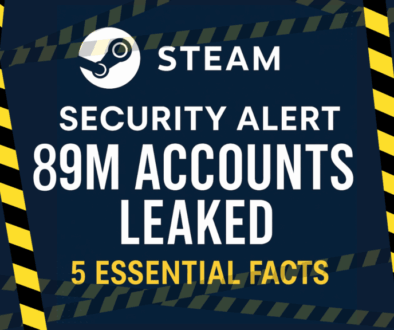Tornado Watch: 9 Shocking Storm Facts Americans Can’t Ignore
What is a Tornado Watch?
A tornado watch is issued by the National Weather Service (NWS) when weather conditions are favorable for tornadoes. This is a critical alert—not that a tornado is happening, but that one could form. It typically covers a large area and remains in effect for several hours.
Residents in areas like Minnesota, Wisconsin, and Iowa are particularly familiar with these alerts. With spring and summer storms intensifying, understanding the implications of a watch can make the difference between safety and tragedy.
Tornado Watch vs. Tornado Warning: Know the Difference
One of the most common confusions is between a tornado watch and a tornado warning:
- 🟡 Tornado Watch: Conditions are favorable. Be alert.
- 🔴 Tornado Warning: A tornado is occurring or imminent. Take shelter immediately.
Bold takeaway: A watch means be prepared. A warning means act now.
9 Shocking Tornado Facts Every American Should Know
1. Tornado Watches Can Span 25,000 Square Miles
A typical watch can stretch across multiple states. This large-scale alert ensures preparedness across a vast region when instability in the atmosphere makes tornadoes more likely.
2. Minneapolis Is a Midwest Tornado Hotspot
Cities like Minneapolis, St. Paul, and Madison frequently see watches due to their location in the active storm corridor. Recent years have shown increased activity in these areas, particularly in May and June.
3. A Watch Often Precedes Hail and Violent Winds
A tornado advisory doesn’t just suggest twister risk. It frequently precedes hail, flash flooding, and winds exceeding 70 mph—turning normal weather into chaos within minutes.
4. Tornadoes Can Touch Down Within Minutes of a Watch
Storms can evolve quickly. While a weather watch may seem precautionary, conditions can escalate in minutes, triggering a warning shortly after.
5. Not All Watches Lead to Tornadoes, but All Demand Respect
Roughly 30-50% of tornado watches result in confirmed tornadoes. That’s a high-enough probability that ignoring a watch can have life-threatening consequences.
6. Doppler Radar Is the Unsung Hero of Forecasting
Weather radar, particularly Doppler, is key to issuing alerts. It detects wind rotation within thunderstorms—signaling a potential twister before it forms.
7. Watches Are Most Common Between 3 PM and 9 PM
Late afternoon and early evening see the highest frequency of watches due to peak atmospheric instability from daytime heating.
8. Tornado Watches Are Getting More Precise
Modern forecasting uses high-resolution models and radar data to issue more localized and accurate alerts, reducing false alarms and enhancing public response.
9. You’re Not Safe Just Because the Sky Is Clear
Tornadoes can strike from storms hidden by hills or darkness. A clear sky nearby doesn’t mean safety—always trust the advisory, not just your view.
Recent Trends: Tornado Watch Alerts in the United States
Over the past week, the Upper Midwest has been a hotbed for severe weather activity. Searches have spiked for:
- “Tornado warning Minneapolis today”
- “Tornado watch Wisconsin”
- “KARE 11 weather” and “WCCO radar”
The Minneapolis–St. Paul metro area issued multiple watches and warnings, with sightings of funnel clouds, reports of hail, and wind damage documented across Dakota County and parts of western Wisconsin.
Local news outlets like FOX 9, KARE 11, KSTP, and WCCO have been leading the storm coverage, guiding residents through real-time updates.
How to Respond When a Tornado Watch is Issued
When you’re under a watch, act with serious caution:
🧭 Your Tornado Watch Action Plan
- ✅ Charge phones and enable weather alerts.
- ✅ Know your safe room (preferably a basement or interior room).
- ✅ Monitor local news stations or the NWS app.
- ✅ Prepare a go-bag with essentials (water, flashlight, medical kit).
- ✅ Avoid travel if possible—conditions can change rapidly.
Tools to Stay Informed
- NWS Tornado Alerts: weather.gov
- Weather Channel Live Radar: weather.com
- Local Minneapolis Alerts: kare11.com, wcco.com
- Mobile Weather Apps: RadarScope, MyRadar, and AccuWeather
Tornado Watch in the Digital Age
Thanks to mobile technology, you can now receive real-time alerts based on your exact location. Apps like NOAA Weather Radar Live and CodeRED Mobile Alert ensure you’re never caught off guard.
Plus, Twitter/X handles like:
- @NWSTwinCities
- @NWSSPC
- @WeatherChannel
…provide rapid alerts and damage reports during storm activity.
Most At-Risk Areas in the U.S.
While Oklahoma, Kansas, and Texas (aka “Tornado Alley”) are notorious for twisters, Minnesota, Illinois, and Wisconsin are now seeing more frequent watches and warnings.
This shift is due to changing climate patterns and increased atmospheric volatility in the Midwest.
Q1: What should I do during a tornado watch?
A: Stay alert, monitor weather updates, review your emergency plan, and be prepared to seek shelter if a warning is issued.
Q2: How will I know if a tornado watch becomes a warning?
A: Local authorities and weather services will issue alerts via sirens, broadcasts, and mobile notifications. Ensure you have multiple ways to receive these alerts.
Q3: Can tornadoes occur without a watch being issued?
A: While rare, tornadoes can develop rapidly without a prior watch. Always stay weather-aware, especially during stormy conditions.
Stay Safe and Informed
Understanding the significance of a tornado watch and the necessary precautions can make a life-saving difference. Stay informed, have a plan, and ensure your loved ones are prepared.
Call to Action: For more information on tornado preparedness and safety tips, visit the National Weather Service Tornado Safety page.



